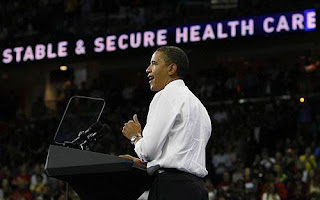
By MARTIN CRUTSINGER (AP) – 2 hours ago
WASHINGTON — Retail sales declined in September by the largest amount this year as car sales plummeted following the end of the government's popular Cash for Clunkers program. But outside of autos, sales were better than expected.
The Commerce Department said Wednesday that retail sales dropped 1.5 percent last month. That's smaller than the 2.1 percent fall economists had expected, but still the biggest setback since sales dropped 3.2 percent in December.
Car sales plunged 10.4 percent, but excluding autos, retail sales rose 0.5 percent. That's better than the 0.2 percent increase analysts expected.
Consumer demand, which accounts for 70 percent of total economic activity, is being watched closely by economists who worry that any recovery from the recession could stall due to the strong headwinds that households still face.
"The increase in sales excluding autos is still fairly modest by normal standards," Paul Dales, an economist at Capital Economics, wrote in a research note. "Moreover, with households' finances likely to remain constrained by falling employment, declining real incomes and tight credit, we doubt that consumption will continue to growth at such rates."
But on Wall Street, the better-than-expected retail sales figures and surprisingly strong earnings reports from Intel Corp. and JPMorgan Chase & Co. pushed the Dow Jones industrials about 35 points away from the 10,000 mark, a level not seen in a year. Major stock indexes all rose about 1 percent in morning trading.
Analysts had expected increases at general merchandise stores following reports last week from the nationwide retailers that sales grew in September at stores open at least a year compared with activity in September 2008. It marked the first year-over-year rise in sales after a year of declines, according to data from the International Council of Shopping Centers and Goldman Sachs.
Shoppers are hungry for markdowns, looking for sales signs at stores, while cashing in on a tax credit for first-time homebuyers and low mortgage rates and home prices. A late Labor Day and delayed school openings also helped retailers last month because consumers purchased some items in September that they would normally have bought in August.
Kohl's Corp. department store chain, Limited Brands Inc., which runs Victoria's Secret and Bath & Body Works, and accessories chain The Buckle Inc. all said their September sales rose at stores open more than a year.
J.C. Penney Co., Cincinnati-based Macy's Inc. and Target Corp. reported their same-store sales fell, but not as much as they had expected.
Also Wednesday, the Commerce Department said businesses slashed their inventories 1.5 percent in August, the 13th straight decline and more than the 0.9 percent fall analysts had expected. Still, many economists say businesses soon may begin rebuilding depleted store shelves after more than a year of cuts. If that occurs, factory production will begin to rise and help bolster a broad recovery from the worst recession since the 1930s.
Analysts believe the overall economy, as measured by the gross domestic product, is growing in the second half of this year at an annual rate of 3 percent or more. But the concern is that growth rate could slip sharply next year if consumer spending falters.
The 1.5 percent drop in retail sales in September followed a 2.2 percent surge in August, which was revised down from an initial estimate of 2.7 percent.
Demand for new cars surged in August as buyers rushed to take advantage of the government's incentives of up to $4,500 to trade in old models for more fuel-efficient cars under the clunkers program that wrapped up at month's end.
Outside of autos, demand at gasoline stations rose 1.1 percent September, partially reflecting higher prices. Excluding gas and auto sales, retail sales rose 0.4 percent in September.
Other areas of strength included demand at furniture stores, which jumped 1.4 percent, reflecting the rebound in the housing industry. Sales at general merchandise stores, a category that includes big retailers such as Wal-Mart and Target, rose 0.9 percent. Sales at department stores edged up 0.4 percent.





















